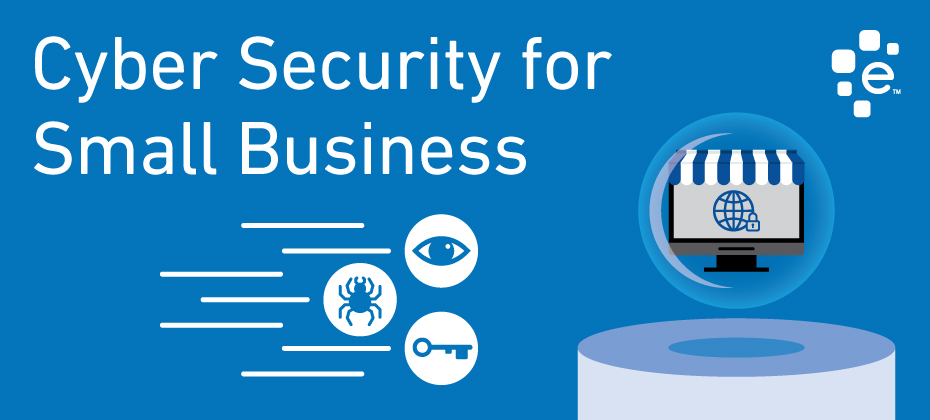Your business probably has a lot of sensitive information that would be damaging if it were to fall into the wrong hands. Unfortunately, hackers are finding new ways to break into businesses every day. If your company has an online presence, it is likely a hacker target. Small businesses are especially at risk, as they don’t have the same resources as larger companies do when it comes to dealing with cyber security threats. However, this doesn’t mean that you can ignore the risks of cyber attacks on your small business. As a small business owner, you understand how critical your operations are to keeping your company thriving. In this blog post, we will look at some of the most common cyber attack vectors and explain why they are so dangerous for small businesses in particular. We’ll also provide actionable tips on how you can protect your business without breaking the bank or dedicating countless hours to implementation.
The Importance of Cyber Security
As you start to look into cyber security for your small business, it’s important to recognize its importance. With cyber attacks on the rise, companies are seeing real and significant losses to their bottom line as a result of data breaches. There are two types of losses that can result from a data breach: First, there are the direct losses, like the cost of hiring a forensics team to investigate the breach, paying for legal counsel, etc. Second, there are the indirect losses, which could potentially be far greater than the direct losses. Businesses that experience data breaches see their stock price decline significantly, even if it’s a minor breach. Customers also become less likely to do business with them. This leads to a decline in revenue that could last for years. The key is to not let a breach happen in the first place. The costs associated with recovering from a breach are far greater than the cost of implementing preventative measures.
Changing Breeds of Attackers
The DNA of cyber attacks has evolved in recent years as attackers have gotten more creative and sophisticated. One of the biggest changes has been the rise in the use of cyber-extortion. This is when malicious actors blackmail companies by threatening to release sensitive information unless they are paid off. Compromised data is often sold on the Dark Web, the part of the internet where cyber criminals go to buy and sell data or hire hackers to carry out attacks. Hackers will sometimes attack a business and steal sensitive information, but then use that information to extort the business by threatening to release the data unless they pay up. These attacks can be incredibly damaging and expensive to recover from, especially for small businesses that don’t have the money or the resources to deal with a breach in the first place.
External Vectors
External vectors are the methods that hackers use to gain access to sensitive information, disrupt operations, or steal valuable data. These vectors include:
- Malware – Malware refers to any malicious software that hackers use to disrupt operations or steal data. Ransomware is a particularly dangerous form of malware that locks you out of your own data, making it very difficult for a company to handle a ransomware attack.
- Phishing – Phishing refers to the use of fraudulent emails sent to people in your organization in an attempt to trick them into clicking on a link that installs malware or directs them to a fraudulent website.
- Social engineering – Social engineering occurs when a hacker contacts employees or other people that have access to sensitive data and tries to trick them into revealing information or clicking on a link.
- Physical attacks – Physical attacks occur when a hacker tries to break into your building and steal data from their computer systems.
- Denial of service – DOS attacks occur when a hacker disrupts your operations by flooding your systems with traffic.
Internal Vectors
Internal vectors are any weaknesses or vulnerabilities in your internal operations. These vectors include:
- Insufficiently trained employees – A lack of employee training makes it easier for hackers to trick people into giving up sensitive information or clicking on malicious links.
- Lack of awareness – If people aren’t aware that they need to be careful about clicking links or opening emails from suspicious senders, they are more likely to fall victim to a hack.
- Old computer systems – Old computer systems are more likely to have security vulnerabilities that make them easier to hack.
- Loopholes in security systems – Even if your security systems are up-to-date, they might contain loopholes that hackers can exploit.
- Lack of physical security – If your building has a weak security system, it’s easier for hackers to gain access to your computer systems.
Conclusion
When it comes to cyber security, it is important to remember that prevention is key. You can’t just secure your systems once and then forget about them. Therefore, the best prevention is to hire cybersecurity experts. They are very knowledgeable and are aware of the best practices for protecting your system from cyber threats. Cybersecurity professionals can take a variety of steps to secure any type of business, including internal and external penetration testing, continuous attack surface testing, secure code analysis, app penetration testing, and more. Any business today needs to be constantly vigilant about the cyber threats that they face. If you aren’t careful, even a well-funded company with a large IT team can have their security breached. This is especially true for small businesses, who lack the resources and money that bigger organizations have to protect their assets. If you want to protect your small business, you need to take the steps necessary to prevent a cyber attack. You need to be aware of the different vectors that hackers use and make sure you are prepared to defend against them.
